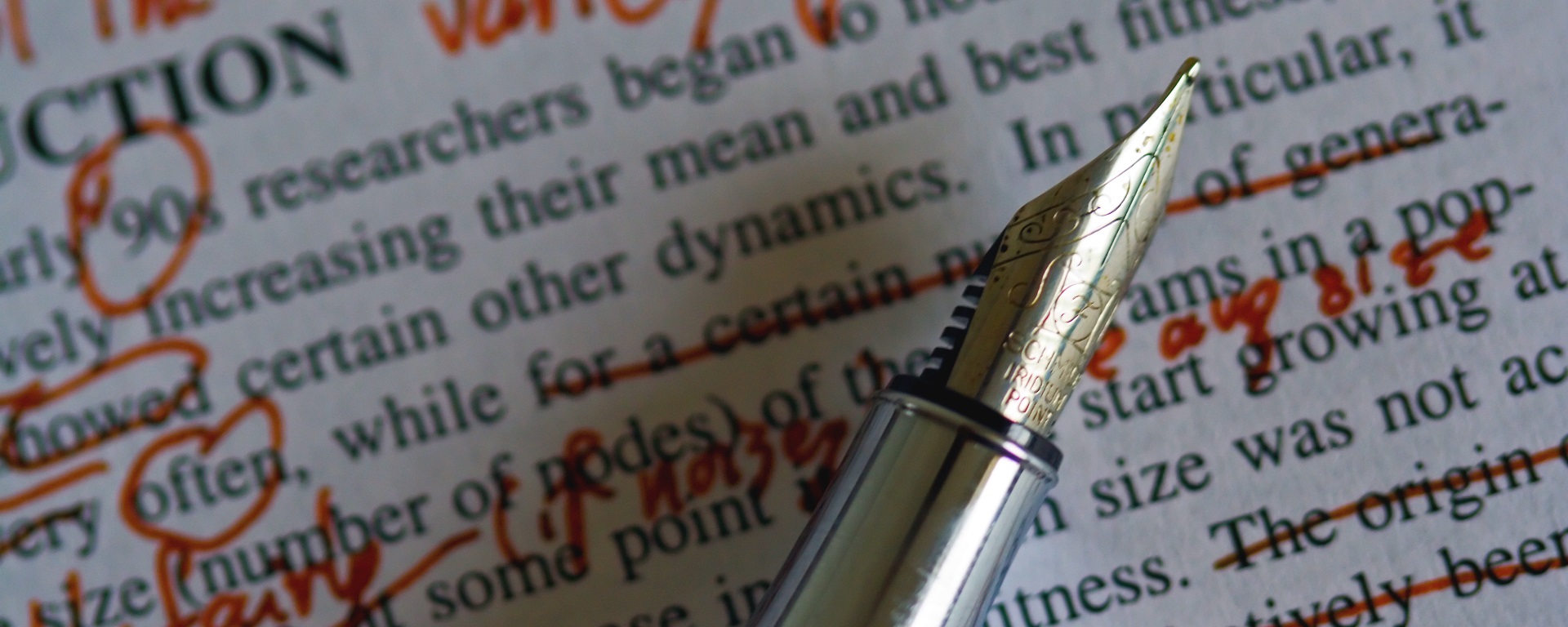Since when on Earth did the act of writing an essay become the art of writing an essay. It’s all peaches and cream when your fingers tap dance incessantly to the rhythms of your discontent with ‘the terrible service and appalling food’ of that restaurant you decided to try because you were feeling frisky, or about how the new Star Wars movie sucked.
But suddenly when the subject becomes ‘How does Shakespeare portray love in this scene’, our hearts shout ‘essay!’ and our minds say ‘oh crap’, and we become overcome with fear of being unable to replicate the patrician academic thesis of some young professional.
Aha! There’s the issue, that somewhere along the line we have come to allocate essay writing solely to the confines of ‘formal writing’, which is as helpful as deeming Chinese cooking to be ‘Asian cooking’.
If you want to write effective essays – or rather, if you want to get over 20 or an ‘Excellence’ in your Milestone – destroy this preconception, destroy this barrier. Because what arises from this is roboticism and tedious structure – stultifying ‘TEXAS’ paragraphs, ‘Firstly, secondly, thirdly and in conclusion’, ‘In this book by John Smith the author…’. It’s not so much about deliberately using interesting starters to every second sentence, or beginning your paragraphs with ‘adverb sentences’ or ‘complex sentences’ like those pestilential, Year 7-looking posters in English classrooms. It’s about writing organically and honestly; write like you’re explaining something to the Queen – natural human-like speech that does not chain paragraphs together with metallic, textbook links, but nevertheless appropriate and to the point. From this, interesting starters will come naturally.
In speech, we do not punctuate our lines with serial, simple sentences that state point after point – and many of us are guilty of such styles of writing – but we speak in long flowing prose that jumps in and out of our train of thought like em-dashes on a page. Write like you talk! And with the same contrasts of punchy statements and convoluted lines. Push yourself to discuss several ideas in one sentence; rather than having 10 ideas in 10 sentences, have 10 ideas in 5 sentences, and that requires extensive use of conjunctions and most importantly, punctuation. Use the em-dash, use the semicolon, use the colon, use the comma, use everything. The rules are only rules if you’re a German.
This doesn’t mean long, rambling essays that say nothing, literary-museums showcasing the English language. I must admit it’s a lot to ask: diverse, organic, free-range essays that nonetheless stay cogent. This may seem stupendously obvious but stick to the essay question like the Bible. Though you should not shy away from exploring IDEAS that may not directly give the xyz answer to the question, your style must, for everything you write on that page must be relevant, must have some kind of use. Do not identify a language feature, or a statistical case for the sake of doing so, or even with the intent of backing up something you just said. Write it to backup the entire essay. It is not enough to discover in the jungle of your text that ‘the sea’s resemblance of a blue line on the horizon shows that it is far away’, say that ‘what we see is a canvas of displacement and distance that being painted, that through the framing of the setting, the author is framing the character’s sense of removal’! Writing an essay is a constant process of asking ‘Why?’. Identify something – but why? Explain it – but why? Link it to the question – and still, why?
There’s no secret formula to a good essay, no Krusty Krab mystery or U.S. nuke code, because if you’re literate and relatively OK at thinking you have all the ingredients already. Rather, it is a process of slightly tweaking your approach to writing as a whole. Relax your shoulders and sit slightly inclined, and write like a human being trying to explore a topic, and not like a robot trying to list out points. Before you know it, writing will not only be easier but more fun.
Header image by nicmcphee on Flickr licensed under CC BY-SA 2.0
Written by Jonathan Shaw, Published on Collegian’s launch day


